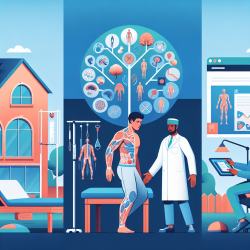As Speech Language Pathologists (SLPs) working in schools, we are tasked with the critical responsibility of supporting the communication needs of children, particularly those in special education. The importance of making data-driven decisions in our practice cannot be overstated. Evidence-based practices are not just a buzzword; they are the foundation upon which we can build effective and meaningful interventions for our students.
Research has consistently shown that data-driven decision-making leads to better outcomes for children. By utilizing data, we can tailor our interventions to meet the unique needs of each child, monitor progress effectively, and make necessary adjustments in real-time. This approach ensures that our therapeutic efforts are both efficient and impactful.
Why Data-Driven Decisions Matter
Data-driven decisions are crucial for several reasons:
- Personalized Interventions: Every child is unique, and their therapy should reflect that. By analyzing data, we can develop personalized intervention plans that address the specific needs of each student.
- Objective Progress Monitoring: Data allows us to objectively measure a child's progress over time. This is essential for determining the effectiveness of our interventions and making necessary adjustments.
- Accountability: In the realm of special education, accountability is paramount. Data provides a clear record of the interventions implemented and the progress made, which is crucial for reporting to parents, teachers, and administrators.
- Evidence-Based Practice: Utilizing data ensures that our practices are grounded in evidence. This not only enhances the credibility of our work but also ensures that we are providing the best possible care for our students.
Implementing Data-Driven Practices
Implementing data-driven practices in your school-based SLP work can be straightforward with the right tools and mindset. Here are some steps to get started:
- Utilize Technology: Leverage technology to collect and analyze data efficiently. Online therapy platforms, like TinyEYE, offer robust data collection and analysis tools that can streamline this process.
- Set Clear Goals: Establish clear, measurable goals for each student. This will provide a roadmap for your interventions and a benchmark against which you can measure progress.
- Regularly Review Data: Make it a habit to regularly review the data you collect. This will allow you to make timely adjustments to your interventions and ensure that you are on track to meet your goals.
- Collaborate with Stakeholders: Engage with teachers, parents, and other stakeholders to gather additional data and insights. This collaborative approach can provide a more comprehensive understanding of a child's needs and progress.
The Role of Online Therapy
Online therapy services, such as those provided by TinyEYE, are particularly well-suited to a data-driven approach. These platforms offer a range of tools that facilitate the collection, analysis, and interpretation of data. By incorporating online therapy into your practice, you can enhance your ability to deliver personalized, effective interventions.
Moreover, online therapy can provide additional flexibility and accessibility, ensuring that all children, regardless of their location or circumstances, have access to high-quality speech language pathology services. This is especially important in special education, where the need for tailored, effective interventions is often greatest.
Conclusion
As SLPs, our ultimate goal is to create the best possible outcomes for the children we serve. By embracing data-driven decision-making, we can ensure that our interventions are both effective and efficient. The evidence is clear: data-driven practices lead to better outcomes. It's time to take the next step and integrate these practices into your school-based SLP work.
If you're ready to enhance your practice with data-driven decisions and online therapy, consider exploring the services offered by TinyEYE. Together, we can make a meaningful difference in the lives of the children we serve.










